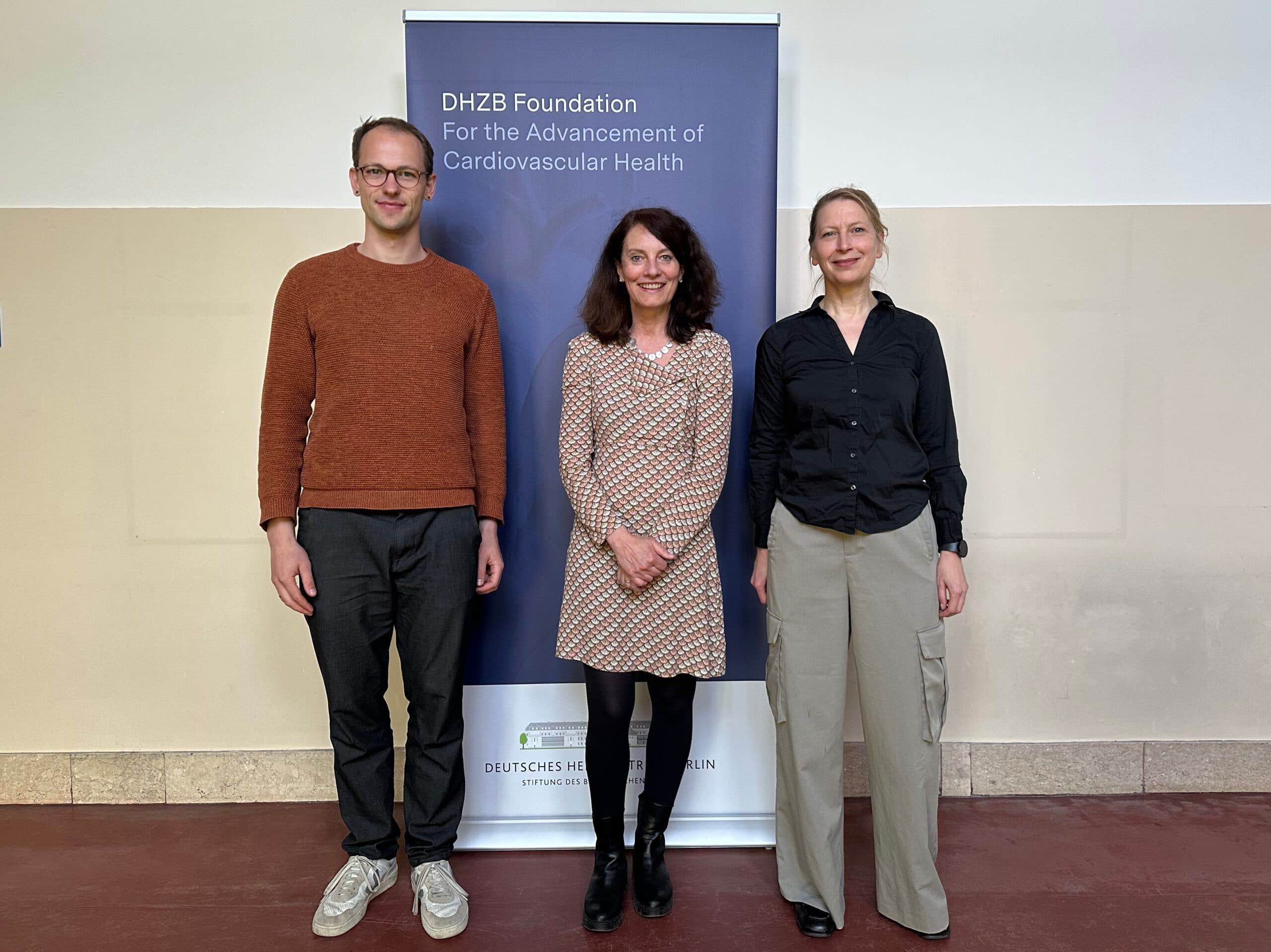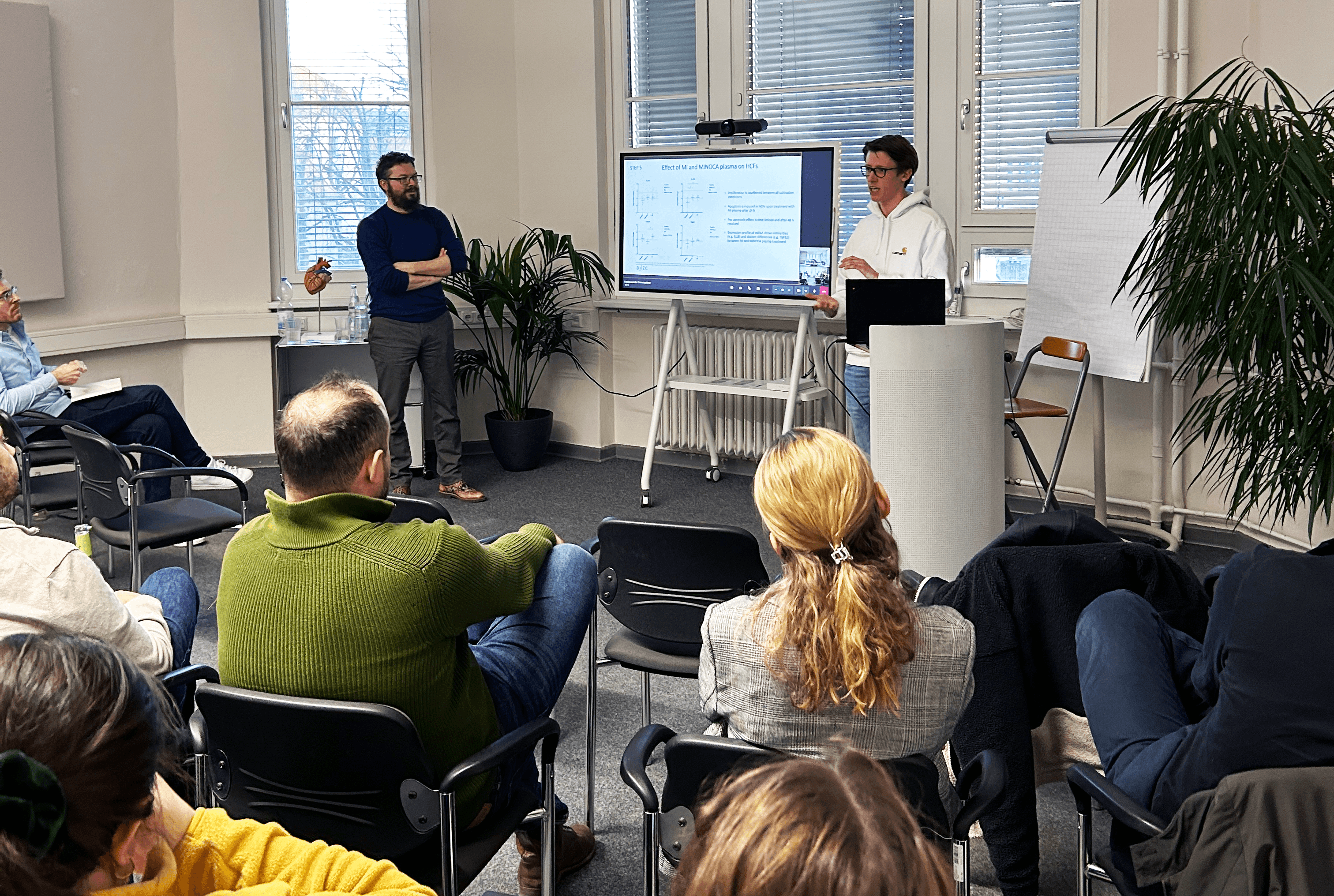Felix Hohendanner and his team members Matthias Bock and Emanuel Heil are using machine learning (ML) to personalize the prediction and treatment of cardiac arrhythmias. Their innovative feedback platform, AtriAI, provides intra- and post-procedural information on the effectiveness of ablation and aims to further individualize therapy in the future. In addition, the first commercial AI-assisted systems at DHZC (German Heart Center Charité) already enable the identification of additional ablation regions. Prospective studies show positive effects of AI-supported ablation on long-term freedom from atrial fibrillation. Furthermore, Hohendanner presented the VAMP-HF study, conducted at DHZC in collaboration with the start-up Noah Labs and the Mayo Clinic. The study demonstrated that AI-based voice analysis can detect early signs of decompensation in heart failure patients, allowing timely medical intervention. In addition, voice analysis can improve clinical discharge management following a decompensation episode.
Electronic Health Records (EHRs) offer considerable potential for clinical prediction, but their complexity and heterogeneity present significant challenges for traditional machine learning methods. In his presentation, Stefan Hegselmann compared traditional EHR foundation models with large language models (LLMs) for medical prediction. While EHR models need many disease examples, LLMs can leverage prior knowledge to perform well with fewer data. Critically, his approach requires no institution-specific training and can incorporate any medical code with a text description, whereas existing EHR foundation models operate on fixed vocabularies and can only process codes seen during pretraining. Results show that LLMs match or surpass EHR models, especially on external datasets like the UK Biobank. Their performance improves with model size and newer architectures. LLMs also offer better interoperability, suggesting they could make medical AI more efficient and broadly applicable.


